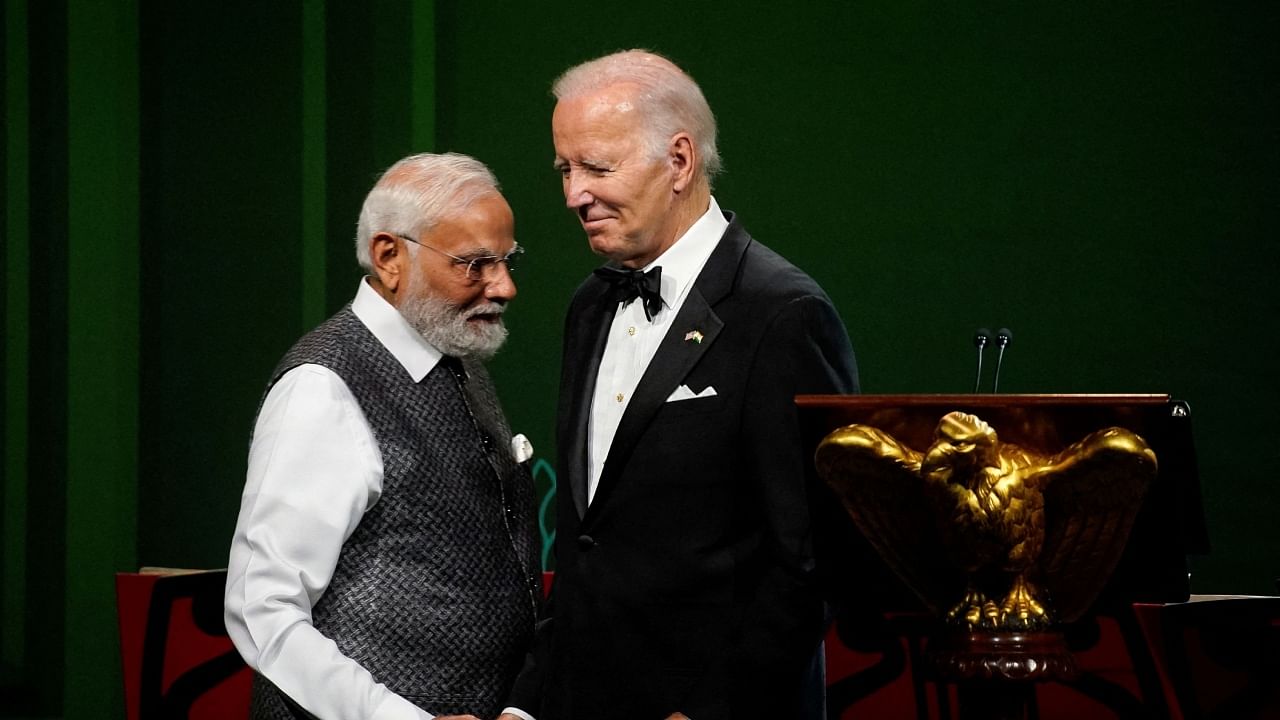
India has agreed to withdraw the additional customs duties it had levied on some US products in retaliation to a move by Washington DC to impose higher tariffs on steel and aluminium imports from all countries.
President Joe Biden’s administration has not announced any reciprocal withdrawal of the higher tariffs on steel and aluminium imports to the US, but Commerce Minister Piyush Goyal on Friday said that Washington DC had promised an exemption for 70 per cent of steel products and 80 per cent of aluminium products from India.
With Biden hosting Prime Minister Narendra Modi for an official state visit to Washington DC, India and the US agreed to terminate six outstanding disputes at the World Trade Organization (WTO). Besides, India also agreed to remove retaliatory tariffs, which it had imposed in June 2019 on certain US products, including chickpeas, lentils, almonds, walnuts, apples, boric acid and diagnostic reagents, after erstwhile administration of President Donald Trump had in the previous year levied 25 per cent customs duties on steel and 10 per cent on aluminium terming it a national security measure under Section 232 of the US Trade Expansion Act of 1962.
Also Read | 'Dark clouds of coercion, confrontation' casting shadow on Indo-Pacific, says Modi while slamming China
“A trade and investment partnership between India and America is important not only for our two countries but for the global economy as well,” Modi said after his meeting with Biden. “We have decided to resolve long-pending trade-related issues and make a new beginning.”
“Our economic relationship is booming. Trade between our countries has almost doubled over the past decade to more than $191 billion, supporting tens of thousands of good jobs in both India and the US,” said Biden.
Katherine Tai, the US Trade Representative, said in Washington DC that the tariff cuts by New Delhi would restore and expand market opportunities for agricultural producers and manufacturers of the US in India. “The resolution also maintains the integrity of the US Section 232 measures,” she added, signalling that the Biden Administration had not withdrawn the customs duties imposed by the Trump Administration on steel and aluminium imports to America.
New Delhi has been nudging the Biden Administration for exemption for steel and aluminium products from India in lieu of withdrawal of some of the higher tariffs it imposed on certain imports from the US. It, however, has not been receiving any positive response from Washington DC.
Goyal, however, said that the US had now assured that at least 70 per cent of the steel products and 80 per cent of the aluminium products from India would be exempted from higher tariffs imposed by the US under the Section 232 measures announced by the Trump Administration in June 2018.
“As a result of our work, US agricultural producers and manufacturers will now enjoy renewed access to a critical global market and we will strengthen our trade relationship with one of our closest partners,” Tai said on New Delhi’s decision to withdraw higher tariffs on import of certain products from the US.
Goyal said that the decision by the two sides to terminate the six WTO disputes – three initiated by India and three by the US – would be beneficial for both nations. He said that the two nations would now have no trade disputes pending at the WTO.
The Modi-Biden meeting saw India asking for the restoration of the Generalized System of Preferences (GSP) privilege for export to the US. The privilege was withdrawn by the Trump Administration in June 2019. The US refrained from making a commitment, but told India that it “could be considered, in relation to the eligibility criteria determined by the US Congress”.
